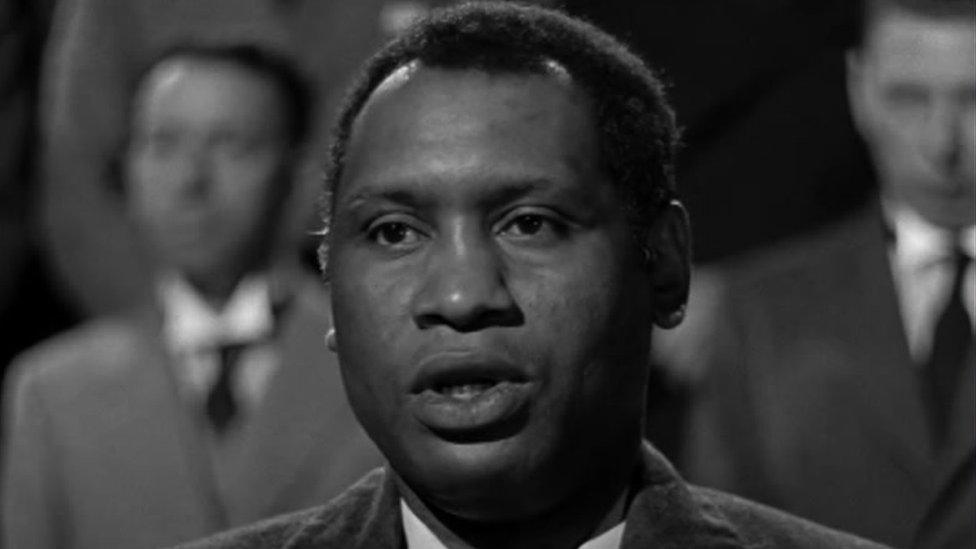Valleys film shot in Polish town up for major awards
- Published
The film was written in English by Welshmen and shot in Poland
A film shot by Welsh directors in a different country, in a language they cannot speak, is in the running for two international awards.
Kevin Phillips, of Tredegar's Green Valley Films, was called "mad" and told changing his first script to Polish would be "impossible".
The Bench also starred children from an orphanage who had never acted.
At the International Filmmaker Festival of World Cinema, external on Saturday it is up against much bigger budget films.
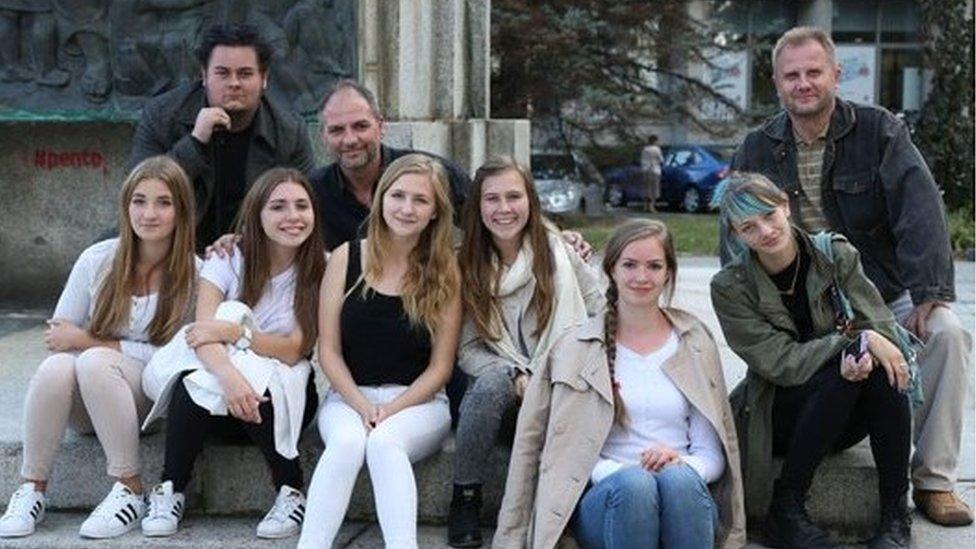
Kevin Phillips (back row second left) with volunteers who acted in The Bench - Your Every Thought is Mine
The movie, which cost £4,000, was shot over two weeks using pupils from a special school and orphanage in Legnica, with a Polish-born Merthyr Tydfil woman translating instructions.
It is up against movies from Japan, the US and Germany at the London event in the best screenplay for a foreign film and talented new filmmaker categories.
The film follows the story of two homeless boys who are in an accident, with one developing supernatural powers as a result, which tears him between good and evil.
About 30 children from Pen y Cwm special school and Deighton Primary, Blaenau Gwent, were flown out to be extras, with governor Steven Knapik saying the project "brought people together and has bonded communities".
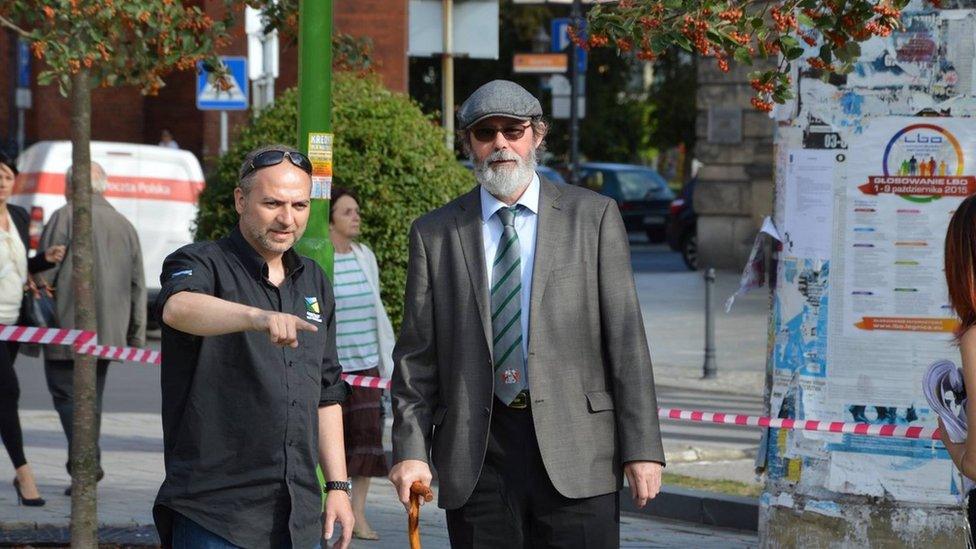
For 15 years, Mr Phillips worked for Rassau-based Artsmagic, which duplicated VHS cassettes of major movies and concerts - with one assignment making 200,000 copies of a Backstreet Boys performance.
But after the industry "died almost overnight", Mr Phillips' career changed course and he filmed interviews for DVD documentaries produced by the company.
In 2005, he created Green Valley Films to allow him to continue doing this.
Mr Phillips gained funding for training, and a film called The Choice, about a drug deal that went wrong, written and starring Bridgend school pupils on a budget of "£1.99 for fake blood" won an award.
This was the spur for him to write his own film - working on it every Saturday for six months with friends Emma Wheeler and Matthew McCarthy.
But a number of issues, such as the logistics and cost of closing areas in south Wales to shoot, were "major obstacles".
"I had been over to Legnica to film a documentary in an orphanage and special schools. It almost seemed like a movie set already," Mr Phillips said.
"How good the town looked, the square for love scenes and action scenes, the rooms where parents met children and the hospital there. It seemed tailor-made."
Hopeful of the exposure Legnica - a town of 100,000 - might get through the film, officials provided accommodation, helped enlist actors and closed roads for filming.
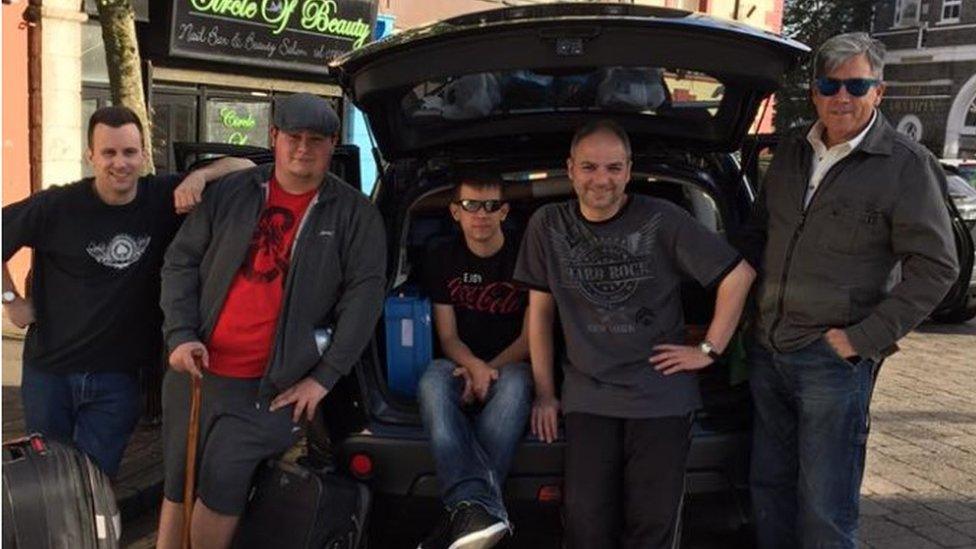
The Green Valley Films crew leaving Tredegar
Polish-born and Merthyr Tydfil-raised Malgosia Jaworska translated the script from English to Polish and when they flew over to audition, there was a line of 40 children waiting.
"People said we were mad for doing it in a foreign language and a foreign country in two weeks. They said it was impossible," said fellow director Alan Terrell.
"But we met up in a car and travelled through nine countries to get there before working 17-hour shifts each day."
Ms Jaworska helped direct the film, translating for Mr Phillips, with all involved working for free and the £4,000 equipment costs coming from a few donations.
Shooting took place in October 2015 and editing was completed at the end of 2016, which is when it was entered into the festival.
'Miracle'
"You will never know the difference made to these children's lives by them being part of your film," said Bozena Zakwicz of Legnica's special school.
"It is something that will stay with them all their lives."
With eight films short-listed in each category from hundreds of entries for Saturday's awards, Mr Phillips said: "It would be a miracle if we won.
"We are a winner being nominated considering the quality and budgets of the others."
The film has also been submitted to Hollywood's Polish Film Festival and will have a premiere in Legnica in April.
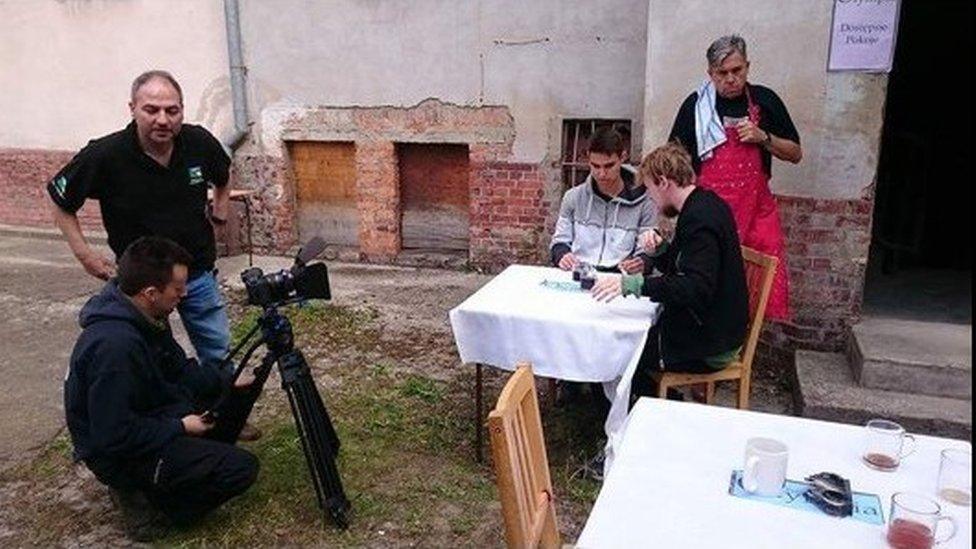
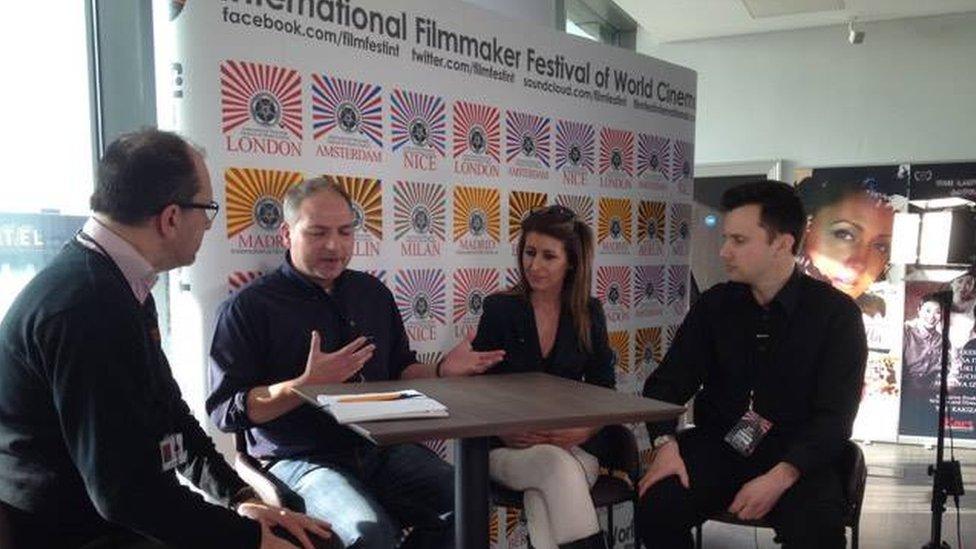
Mr Phillips talks about "The Bench - Your Every Thought is Mine" at the film festival, that is lasting a week
- Published3 February 2017

- Published19 December 2016
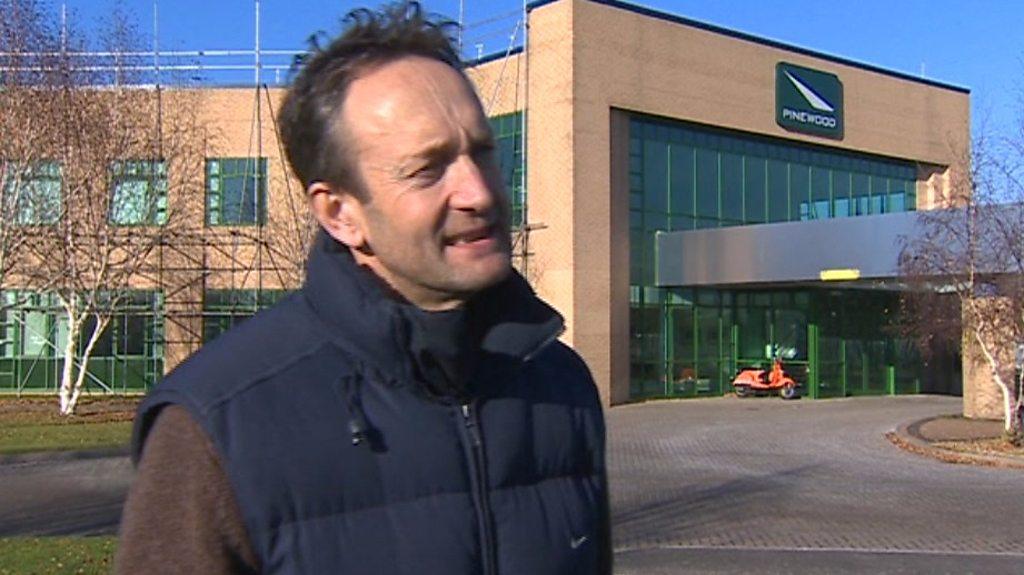
- Published13 November 2016
